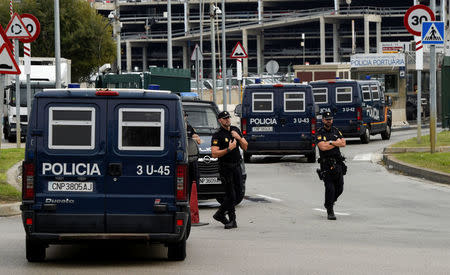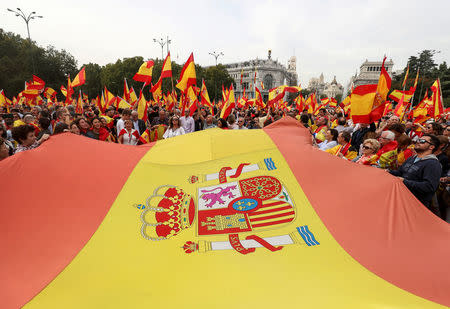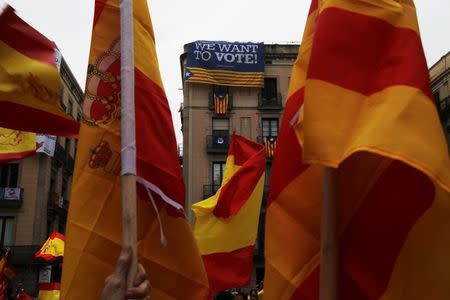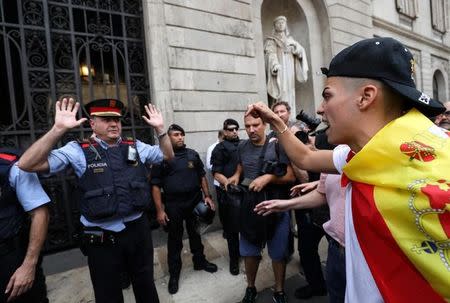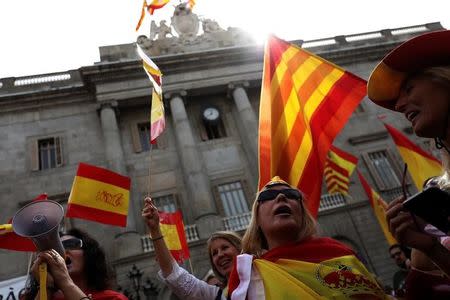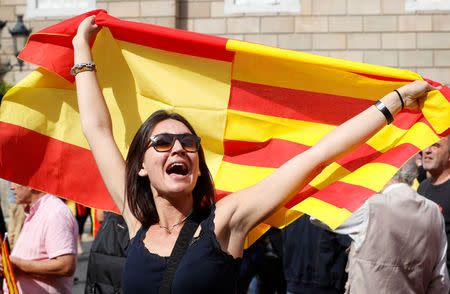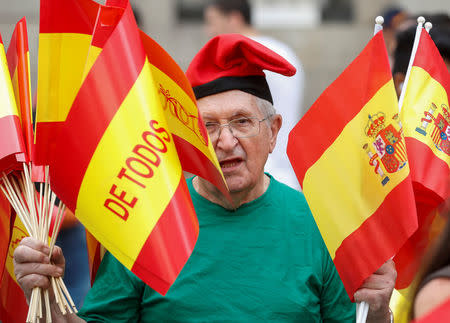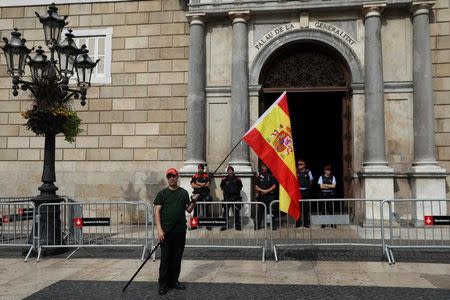Spanish police move to enforce ban on Catalan independence referendum
By Sam Edwards BARCELONA (Reuters) - Spanish police monitored schools earmarked as polling stations and occupied the Catalan government's communications hub on Saturday in an effort to prevent a banned independence referendum which has divided Spain. Hundreds of supporters of the referendum spent the night in schools with their children and say they plan to remain there until Sunday to keep them open for voters. A Spanish government source said more than half the schools had been closed off and police would remove people who attempted to vote on Sunday. Less than a tenth of schools were occupied by parents, the source said. Tens of thousands of Catalans are expected to attempt to vote on Sunday in a ballot that will have no legal status as it has been blocked by Spain's Constitutional Court and Madrid for being at odds with the 1978 constitution. Catalonia is a wealthy region within Spain with its own language and culture. Should the vote take place, a "yes" vote is likely, given that most of the 40 percent of Catalans who polls show support independence are expected to cast ballots while most of those against it are not. Parents in some of the occupied schools said police officers had told them they could stay as long as they were not doing anything connected with the referendum. "The police have been four times," said Laia, a 41-year-old sociologist at a school in central Barcelona where around 100 children were playing and 80 people were planning to stay the night while neighbours brought food. "They read us out the part of the court order that says no activities related to the preparation of the banned referendum are allowed." The Catalan police, or Mossos d'Esquadra, who are monitoring the schools, are held in great affection by the Catalan people, especially after Islamist attacks in the region in August that killed 16. Madrid has sent thousands more police to the region in the northeast of Spain to enforce a court order banning the referendum, many of whom are billeted in two ships in the port. 'SPANISH UNITY' The Spanish government source said it would be up to police how they carried out orders to remove people from polling stations on Sunday. The head of the Catalan police on Friday urged officers to avoid the use of force. The Catalan government said police had occupied its communications hub and would remain there for two days after Catalonia's High Court ordered police to prevent electronic voting and instructed Google to delete an application it said was being used to spread information on the vote. Despite central government and court efforts to prevent the referendum, Catalan leader Carles Puigdemont told Reuters on Friday it would go ahead, with no last minute compromise. Organisers urged voters to arrive at 5 a.m. (0300 GMT) at polling stations and to wait in line until the schools were opened. Voters must show peaceful resistance to police action, organisers said. "We must be sure there are lots of people present of all ages," they said in instructions disseminated on social media. Any volunteer staffing a voting station with use of a census would be liable for a fine of up to 300,000 euros, the government source said. In a sign of how the breakaway attempt is fiercely opposed elsewhere in Spain, rallies took place outside town halls in major cities including Cordoba, Malaga and Zaragoza. A pro-unity crowd also gathered in the Catalan capital Barcelona. Hundreds gathered in the centre of the capital Madrid waving Spanish flags and chanting 'Spanish unity' and 'Don't fool us - Catalonia is Spain'. Many balconies in the capital are draped with the red and yellow Spanish flag. Some sang the Spanish fascist anthem 'Facing the Sun', a hymn often played during the dictatorship of Francisco Franco. While all sides have called for people to remain peaceful, three people sustained minor injuries when they were shot at with a pellet gun outside a school late on Friday, police said. (Additional reporting by Alba Asenjo, Miguel Gutierrez and Sonya Dowsett; Writing by Alexander Smith; Editing by Janet Lawrence)

